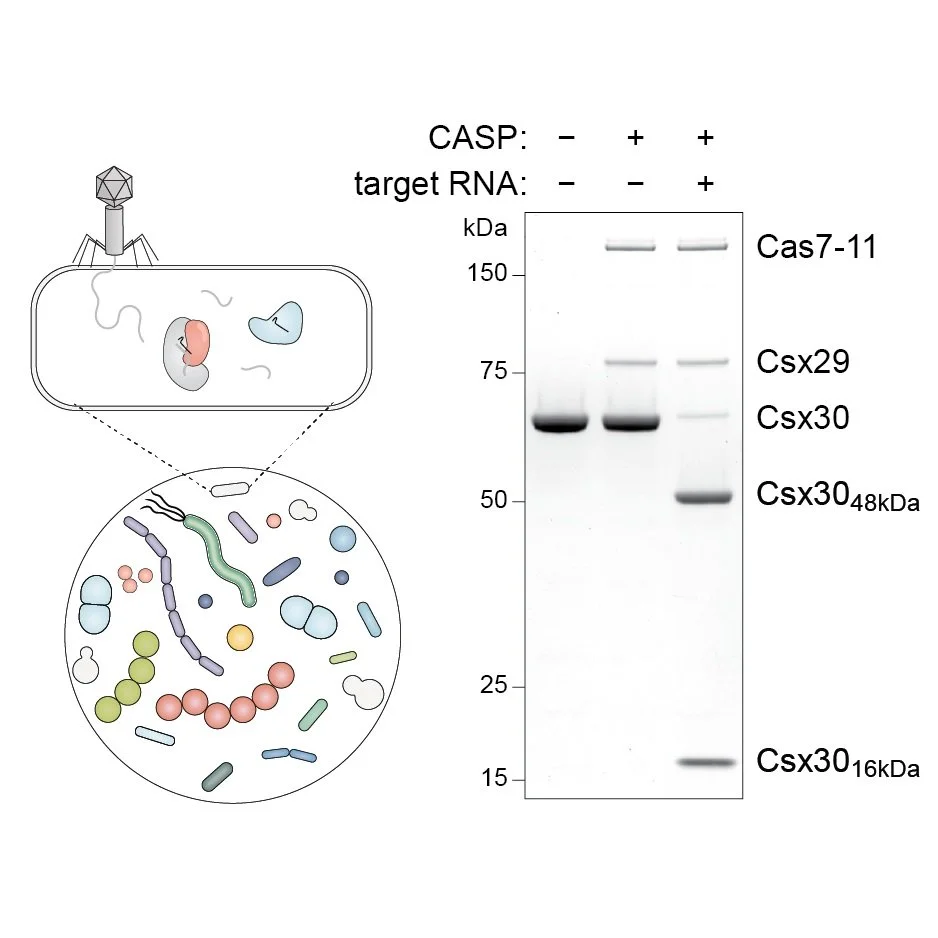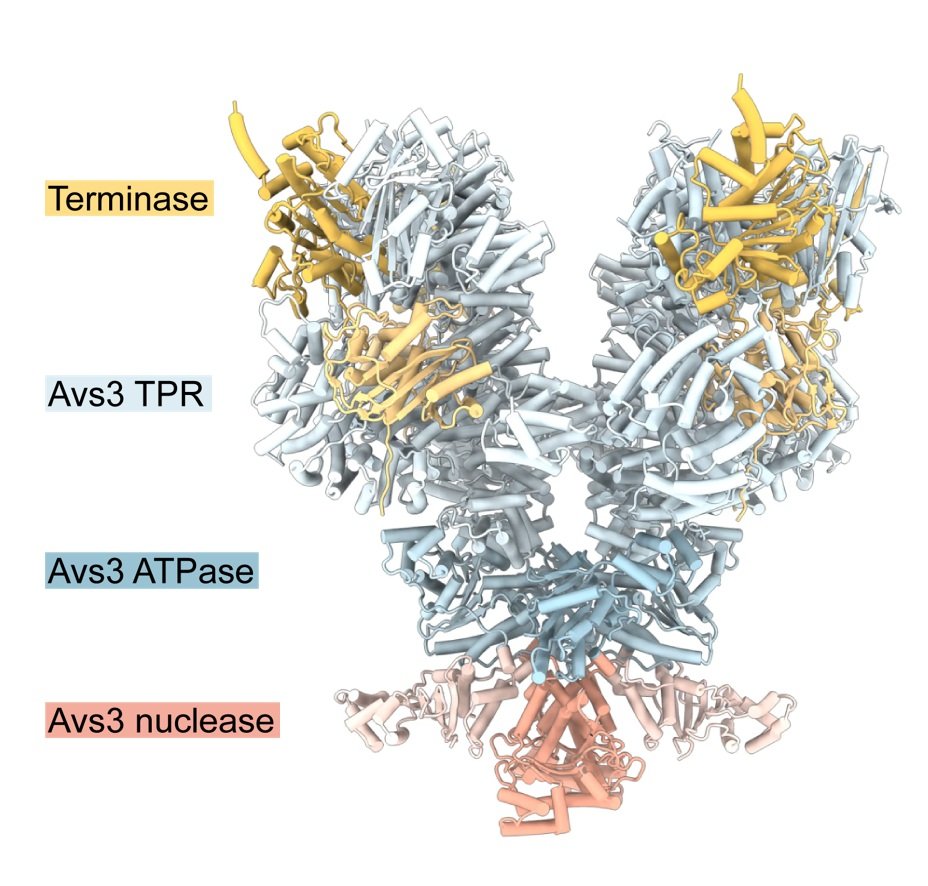Ongoing projects
-

Programmable biological functions
CRISPR-Cas systems typically provide immunity via RNA-guided nuclease activity, however, additional molecular functions have been identified including CRISPR-associated transposases that perform RNA-targeted DNA insertion (Strecker et al, 2019), and CRISPR-associated proteases that cleave a protein substrate upon RNA detection (Strecker et al, 2022). We are broadly interested in how cells sense and respond to nucleic acids and how diverse enzymes can be controlled in a programmable manner.
-

Immune proteins throughout nature
The natural world is filled with fascinating immune proteins and the arms race between bacteria and viruses is a particularly rich reservoir for their discovery. Propelled by bacterial metagenomic sequencing and computational discovery, we are interested in characterizing new immune systems and identifying evolutionary connections in immunity across species.
-

Enabling new biological capabilities
Advances in sequencing over the past decades have resulted in large datasets providing insight into gene function, mutations that cause disease, and unique cell populations based on gene expression signatures, however, we lack the ability to fully interact with this data and to test hypotheses. A long-term goal is to use our basic discoveries to engineer tools that can control cells based on their genomic and transcriptomic state.